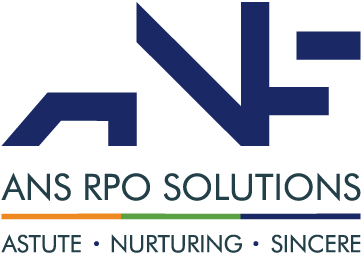Veterans hiring is not just a patriotic act; it’s a strategic business decision that brings unique skills, discipline, and experience to the workplace. In recent years, companies have recognized the value of veterans and are actively implementing targeted Recruitment Services to support and integrate them into the civilian workforce. In this blog, we’ll delve into the importance, programs, benefits, and strategies surrounding veterans’ hiring.
Importance of Veterans Hiring:
- Diverse Skill Sets:
Veterans hiring often possess a diverse skill set gained through their military service. From leadership and teamwork to problem-solving and adaptability, these skills are transferable and highly valuable in a variety of industries. - Discipline and Work Ethic:
Military service instils discipline and a strong work ethic. Veterans are known for their commitment to excellence, reliability, and the ability to thrive in high-pressure situations.
- Leadership Experience:
Many veterans have held leadership positions within the military, making them well-equipped to take on leadership roles in civilian organizations. Their experience in managing teams and making critical decisions can contribute significantly to the success of a company.
- Adaptability:
Veterans are trained to adapt to different environments and quickly learn new skills. This adaptability is crucial in today’s fast-paced and ever-changing business landscape.
Also Read: RPO in High-Volume Recruitment: Best Practices for Efficient Hiring
Veterans Hiring Programs:
There are several government programs that help veterans and their spouses. Here are some of the programs:
- Veterans Recruitment Appointment (VRA): This program allows eligible veterans to apply for positions at the GS-11 level or lower. It is a special hiring authority that can be used to fill temporary or permanent positions.
- Veterans Employment Opportunity Act of 1998 (VEOA): This act allows eligible veterans to apply for positions that are open to candidates outside of the agency’s workforce. It is a competitive service appointment that can be used to fill permanent, temporary, or term positions.
- 30% or More Disabled Veteran: This program allows eligible veterans with a service-connected disability rating of 30% or more to be considered for non-competitive appointments. It is a special hiring authority that can be used to fill temporary or permanent positions.
- Veteran Readiness and Employment (VRE): This program offers support and services for veterans with service-related disabilities. VRE can help you get job training and counselling, find and keep a job, and start a business.
- Boots to Business: This program provides entrepreneurship training to veterans and their spouses. It can help you learn how to plan and open a small business.
- USA.gov website: The government runs various training and placement programs for veterans on their website.
Benefits of Veterans Hiring:
- Diverse and Inclusive Workforce: Veterans bring diversity to the workforce, contributing unique perspectives and experiences that can enhance innovation and problem-solving.
- Positive Public Image: Companies that actively support veterans through targeted recruitment programs often enjoy a positive public image. Consumers appreciate businesses that prioritise social responsibility.
- Access to a Talent Pool: By tapping into the veteran talent pool, companies can access individuals with specialised training and experience, particularly in areas like technology, logistics, and healthcare.
Recruitment Strategies:
Here are some strategies that companies can employ to hire veterans:
- Focus on the entire military family: When building a veteran hiring strategy, start broad. While the veteran unemployment rate has fallen drastically over the past five years, veteran spouses still have an unemployment rate of 18%.
- Meet candidates on military-friendly job boards: Organizations looking to hire veterans should identify which opportunities fit with the skill sets of veteran candidates and post those jobs on veteran job boards. Meet veterans where they are.
- Write job postings in military-friendly language: Any jobs on military-friendly job boards or targeting veteran candidates should be written in military-friendly language. Communicating with veteran candidates in a familiar language demonstrates an organization’s military-friendly culture and commitment to veteran hiring. It also drives more veteran candidates because those candidates understand exactly what the posting is looking for.
- Gain executive sponsorship for your veteran program: A successful veteran hiring program needs to have a strong commitment throughout the organization from the top down. Executive sponsorship of veteran hiring programs empowers everyone in the organization to implement many of these best practices.
- Create a military hiring website separate from a traditional careers page: A separate veteran careers page gives organizations the ability to speak directly to veteran candidates about their veteran hiring programs and commitments. By separating this careers page from civilian candidates and even other diversity outreach programs, organizations can demonstrate their commitment and direct veterans to opportunities identified as fitting well with veteran skill sets.
- Update your job descriptions: Look at vets’ transferable skills and learn how your company can utilize these in different occupations.
- Track your hiring pipeline data: Monitor your candidates at every stage to identify where you lose or gain veterans throughout your talent pipeline.
- Learn about the military’s culture, values, and language: Understanding the military’s culture, values, and language can help you better connect with veteran candidates and create a more welcoming environment for them.
- Establishing Partnerships: Collaborate with veterans’ organisations, educational institutions, and government agencies to build partnerships that support veterans hiring initiatives.
- Training and Development Programs: Implement training programs to bridge any skill gaps that veterans might have in transitioning to civilian roles. This investment can result in long-term employee loyalty.
- Mentorship Programs: Create mentorship programs that pair veterans with experienced employees within the company. This can facilitate a smoother transition and integration into the corporate culture.
Supporting veterans through targeted recruitment programs is not just a corporate social responsibility; it’s a strategic move that benefits both veterans and employers. The importance of veterans hiring goes beyond goodwill, contributing to a diverse, skilled, and adaptable workforce. By implementing effective programs and strategies, businesses can harness the unique strengths of veterans and cultivate a workplace culture that values their contributions. As we look to the future, it’s clear that veterans hiring is not just a trend but a key element in building successful and socially responsible organizations.
ANS RPO is a leading offshore RPO solution provider.


